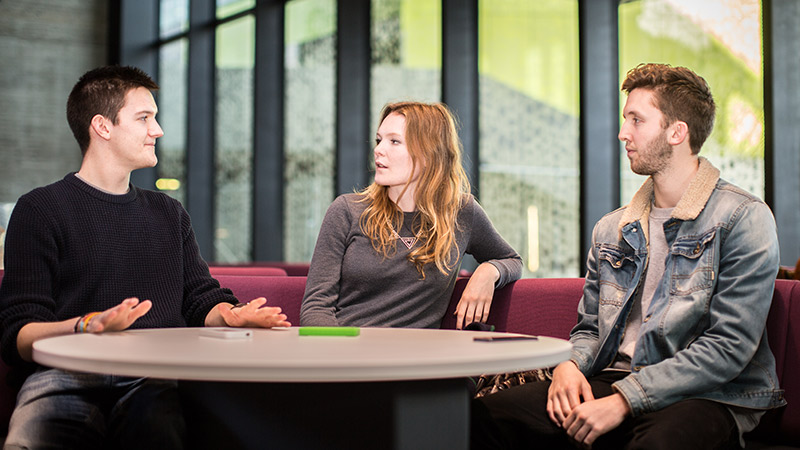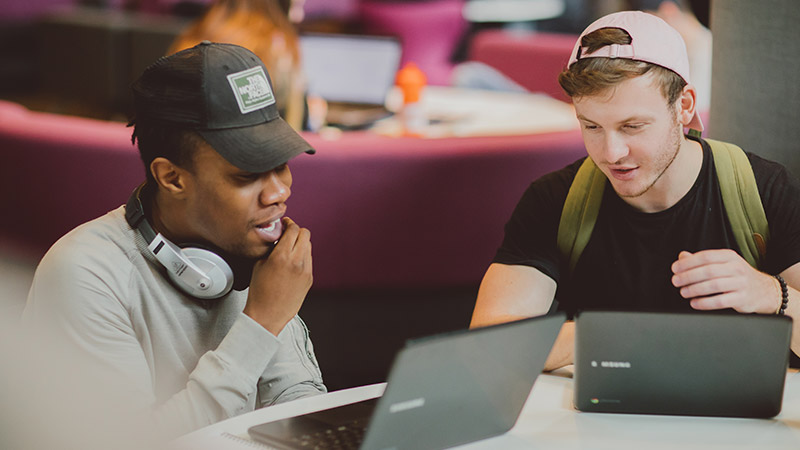History (with Foundation Year)
BA (Hons)
UCAS code: V101
Start dates: September 2026
Full time: 4 Years, or 5 if year abroad is chosen
Part time: Up to 11 years
Location: Headington
Overview
A history degree is about far more than studying the past. Discover why people act the way they do. Explore how societies develop. Then see how your insights apply to the present day so you can uncover answers to issues that could affect everyone's future.
History with a Foundation Year is a unique integrated degree programme, enabling you to develop academic skills crucial to university study, such as critical analysis, academic writing and collaboration. And we'll support you as you grow your confidence, get to know your strengths and build your knowledge.
In your first year, you'll undertake our Foundation in Humanities course, and you'll then progress to the three year undergraduate programme in History, with an opportunity to do an optional study abroad or work placement, as an additional year. With the diverse experience, confidence and skills you'll gain, you'll be fully prepared for a career in a variety of sectors - with hundreds of years of historical insight to inspire you.

Why Oxford Brookes University?
-
Perfect preparation
Build essential study skills with an integrated foundation year. Gain academic confidence, improve critical thinking, and strengthen subject knowledge for your degree journey.
-
More than texts
Study paintings, speeches, newspapers, artefacts, and visit historical locations to see what notable figures’ experiences tell us about life today.
-
Develop new skills
You’ll study modules designed to help you progress through the course and have the option to go on a work placement to apply your skills.
-
Friendly and supportive
Being a small department, we get to know everyone by name and we always offer regular one-to-one tutorials to support you in your studies.
-
Get involved
We have an active community with the History Society running regular events like day trips, socials, and lectures.
Course details
Study modules
Teaching for this course takes place face to face and you can expect around ten hours of contact time per week in your foundation year, and around seven hours of contact time per week during your degree. In addition to this, you should also anticipate a workload of 1,200 hours per year. Teaching usually takes place Monday to Friday, between 9.00am and 6.00pm.
Contact hours involve activities such as lectures, seminars, practicals, assessments, and academic advising sessions. These hours differ by year of study and typically increase significantly during placements or other types of work-based learning.
Please note: As our courses are reviewed regularly as part of our quality assurance framework, the modules you can choose from may vary from those shown here. The structure of the course may also mean some modules are not available to you.
Careers
Studying History with a Foundation Year at Oxford Brookes not only instils a lifelong passion for history. It opens up possibilities for career development and makes you a versatile employee in any organisation.
Our work placement modules enable you to gain practical experience and specialist knowledge that will stand out on your CV and are valuable in a variety of fields. With the adept communication skills you'll develop, you may consider jobs in areas like advertising or journalism. One of our graduates is a photojournalist for National Geographic. Others are working in advertising, banking, and retail.
By studying in Oxford, you'll already be familiar with some of the country's best museums and historical sites. This has benefited our graduates. For example, past students are now working in places like Blenheim Palace, the National Army Museum, and the Battle of Britain Bunker.
You'll be a valuable addition to a variety of sectors like:
- politics
- the Civil Service
- charity
- education
- media
- law.
Entry requirements
Wherever possible we make our conditional offers using the UCAS Tariff. The combination of A-level grades listed here would be just one way of achieving the UCAS Tariff points for this course.
Standard offer
UCAS Tariff Points: 48
A Level: DD
IB Points: 24
BTEC: PPP or MP
Further offer details
Applications are welcomed from candidates with alternative qualifications, and from mature students.
Specific entry requirements
Please also see the University's general entry requirements.
English language requirements
Applicants whose main language is not English should have IELTS 6.0.
Please also see the University's standard English language requirements.
English requirements for visas
If you need a student visa to enter the UK you will need to meet the UK Visas and Immigration minimum language requirements as well as the University's requirements. Find out more about English language requirements.
Credit transfer
Many of our courses consider applications for entry part-way through the course for students who have credit from previous learning or relevant professional experience.
Find out more about transferring to Brookes. If you'd like to talk through your options, please contact our Admissions team.
Terms and conditions of enrolment
When you accept our offer, you agree to the Terms and Conditions of Enrolment. You should therefore read those conditions before accepting the offer.
How to apply
Application process
Full time international applicants can also apply through UCAS
Tuition fees
Questions about fees?
Contact Student Finance on:
Tuition fees
Please note, tuition fees for Home students may increase in subsequent years both for new and continuing students in line with an inflationary amount determined by government. Oxford Brookes University intends to maintain its fees for new and returning Home students at the maximum permitted level.
For further information please see our tuition fees FAQs.
Tuition fees for International students may increase in subsequent years both for new and continuing students.
The following factors will be taken into account by the University when it is setting the annual fees: inflationary measures such as the retail price indices, projected increases in University costs, changes in the level of funding received from Government sources, admissions statistics and access considerations including the availability of student support.
How and when to pay
Tuition fee instalments for the semester are due by the Monday of week 1 of each semester. Students are not liable for full fees for that semester if they leave before week 4. If the leaving date is after week 4, full fees for the semester are payable.
- For information on payment methods please see our Make a Payment page.
- For information about refunds please visit our Refund policy page
Additional costs
Please be aware that some courses will involve some additional costs that are not covered by your fees. Specific additional costs for this course are detailed below.
Compulsory costs
| Additional costs | Amount (£) |
|---|---|
| Disclosure Barring Service (DBS) initial check (if you undertake specific modules or placements in some providers) | £54 |
Optional costs
| Additional costs | Amount (£) |
|---|---|
It’s your responsibility to cover print / binding costs where coursework submission is required. Please note that a lot of the coursework is now submitted online. |
From £30 |
| You may choose to purchase books to support your studies. Many books on our reading lists are available via the Library, or can be purchased secondhand. | £20-60 per book |
Accommodation fees in Brookes Letting (most do not include bills) |
£107-301 per week |
Accommodation fees in university halls (bills included, excluding laundry costs) |
£139-248 per week |
Graduation costs include tickets, gowning and photography. Gowns are not compulsory but typically students do hire robes, starting at £41. |
Typically £0-200 |
Students are responsible for their own travel to and from university for classes. For the 2025/26 academic year, the University is introducing an alternative subsidised travel offer for all students with further information on our Travel webpages. |
From £10 |
Funding your studies
Financial support and scholarships
Featured funding opportunities available for this course.
All financial support and scholarships
Information from Discover Uni
Full-time study
Part-time study
Programme changes:
On rare occasions we may need to make changes to our course programmes after they have been
published on the website. For more information, please visit our
changes to programmes page.

